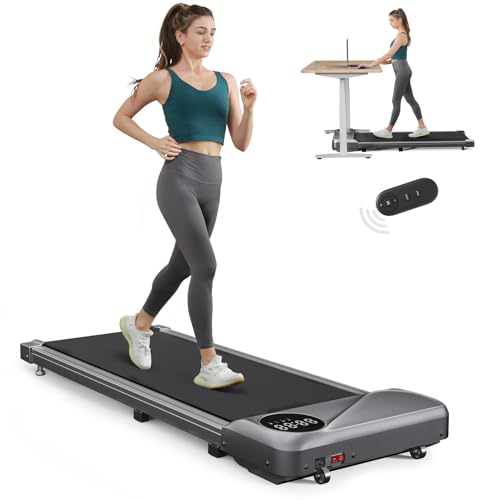The Essential Guide to Buying a New Treadmill: What You Need to Know
As fitness enthusiasts continue to seek versatile and effective ways to keep their physical health, treadmills remain a staple in home and commercial fitness centers alike. The technology and features of treadmills have advanced significantly in current years, making now an exceptional time to consider purchasing a new treadmill. This post intends to assist prospective buyers through essential elements to think about, different types of treadmills readily available, and regularly asked concerns to guarantee they make an informed choice.
Comprehending Treadmill Types
Before delving into specific brands, it's worth comprehending the main types of treadmills available in the market. This summary will assist individuals identify which type best fits their fitness needs and spending plan.
1. Handbook Treadmills
- Description: These treadmills do not count on electrical power and are powered entirely by the user's motion.
- Pros:
- Generally less costly.
- Compact and lightweight, making them simple to shop.
- Cons:
- Limited includes compared to motorized treadmills.
- Less appropriate for high-intensity workouts.
2. Motorized Treadmills
- Description: These treadmills come geared up with electric motors that help with motion and permit for adjustable speed settings.
- Pros:
- Offer a large range of speed and slope choices.
- Typically geared up with innovative technology, consisting of exercise programs and heart rate displays.
- Cons:
- More pricey and require more maintenance.
- Heavier, making them difficult to move.
3. Folding Treadmills
- Description: These treadmills can be folded for convenience, making them an excellent choice for those with restricted area.
- Pros:
- Space-saving style.
- Still offers motorized alternatives.
- Cons:
- May sacrifice some stability and durability for mobility.
4. Industrial Treadmills
- Description: Designed specifically for fitness centers and gym, these treadmills are built with more long lasting materials.
- Pros:
- High-quality building and longevity.
- Features created for intensive usage.
- Cons:
- Generally more expensive and larger in size.
Comparison Table of Treadmill Types
| Treadmill Type | Source of power | Secret Features | Price Range | Perfect For |
|---|---|---|---|---|
| Manual | None | Fundamental functionality | ₤ 100 - ₤ 500 | Newbies, budget plan users |
| Motorized | Electric | Adjustable speed/incline | ₤ 500 - ₤ 3,000 | All fitness levels |
| Folding | Electric | Space-saving functions | ₤ 300 - ₤ 1,500 | Limited area users |
| Business | Electric | Sturdiness and efficiency | ₤ 1,500 - ₤ 8,000 | Fitness centers, heavy use |
Secret Features to Look For
When buying a new treadmill, numerous essential features should be considered:
- Motor Power (HP): A more effective motor (a minimum of 2.5 HP) is essential for running and for users who plan to utilize the treadmill frequently.
- Running Surface: Consider the size of the belt. that guy and broader running surface area can accommodate longer strides and supplies better security.
- Slope Options: Adjustable incline can include strength to exercises and target different muscle groups.
- Exercise Programs: Many treadmills provide integrated workout programs that can direct users through different exercises and routines.
- Display Features: A clear screen makes it possible for users to track their speed, distance, calories burned, and heart rate more easily.
- Cushioning: Adequate shock absorption can lower the risk of injury and offer a more comfy running experience.
- Innovation Integration: Features like Bluetooth connectivity, mobile app combination, and integrated speakers can enhance the exercise experience.
Regularly Asked Questions (FAQs)
Q1: How much should I budget for a treadmill?
A: Budget can differ based on functions and quality. Manual treadmills begin around ₤ 100, while motorized designs can vary from ₤ 500 to ₤ 3,000, depending on innovative features.
Q2: How often should I preserve my treadmill?
A: Regular upkeep, consisting of lubricating the belt and examining the motor, should be done monthly. Check the treadmill for wear and tear regularly.
Q3: Can I lose weight with a treadmill?
A: Yes, routine use of the treadmill, integrated with a healthy diet, can help with weight reduction. Including interval training increases intensity and calorie burn.
Q4: Is it much better to operate on a treadmill or outdoors?
A: Both have benefits. Treadmills provide a regulated environment and cushioning, while outside running offers varied landscapes and natural inclines.
Q5: Do I require special shoes for using a treadmill?
A: While particular treadmill shoes aren't required, using good-quality running shoes created for support, cushioning, and stability is a good idea.
Investing in a new treadmill can significantly affect one's physical fitness journey, supplying opportunities to work out in your home no matter weather. By understanding the types of treadmills available and considering important features, individuals can pick a model that fits their lifestyle and fitness goals. Whether aiming for casual strolls or intense running sessions, the best treadmill can transform exercise routines, making them more satisfying and effective. With the rise in technology and ingenious designs, the treadmill remains an ageless and important tool in personal fitness.

